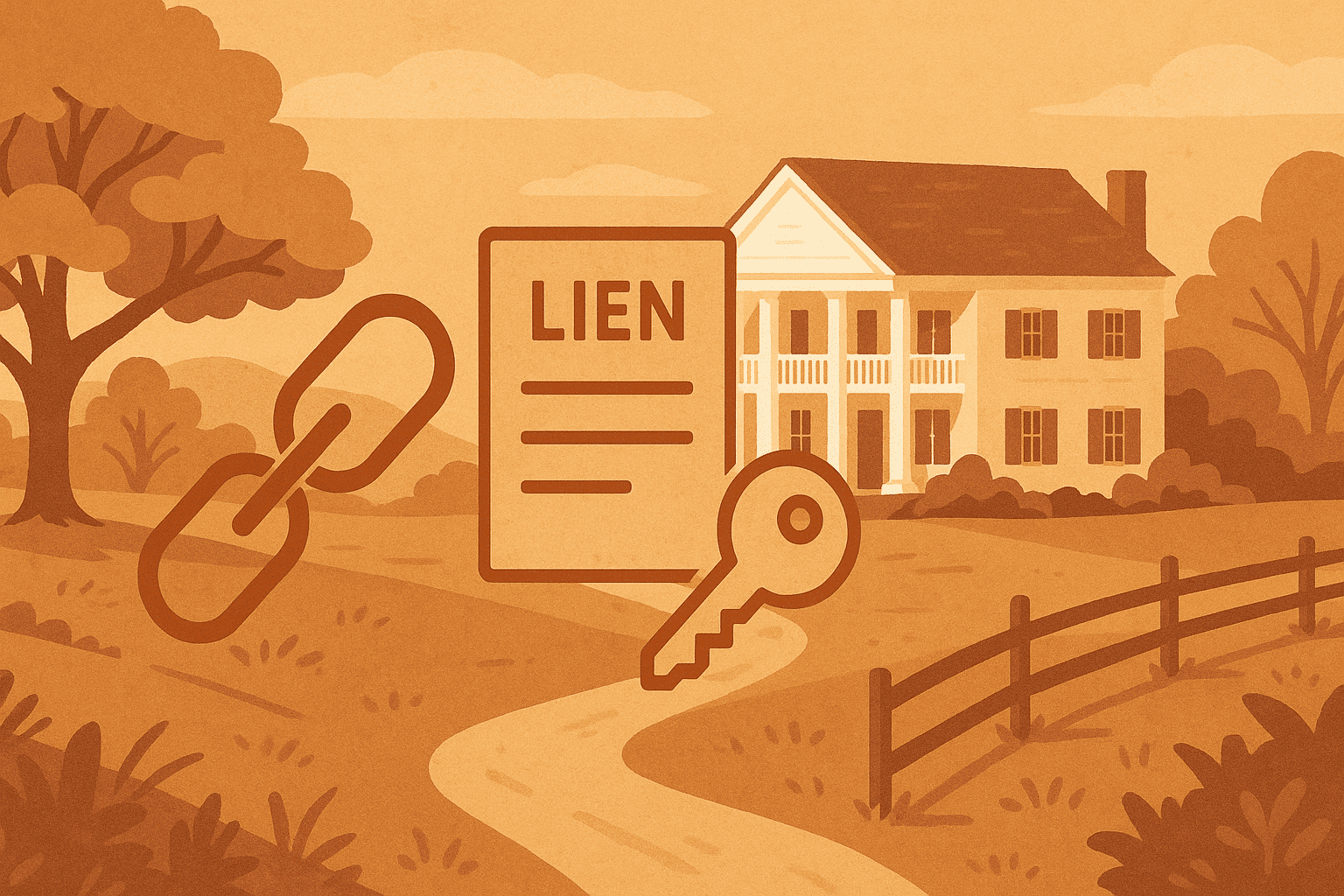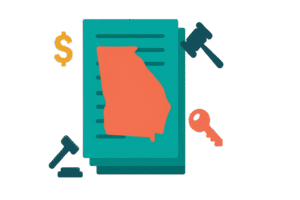Common Georgia Title Issues: Problems and Solutions
As a Georgia real estate closing attorney with over 22 years of experience, I’ve seen just about every title snag you can imagine pop up…

As a Georgia real estate closing attorney with over 22 years of experience, I’ve seen just about every title snag you can imagine pop up at the closing table.
Let’s be honest, title problems aren’t just lawyer jargon, they’re real hurdles that can turn a dream home purchase into a nightmare if you aren’t prepared. But here’s the good news: most of the common title issues in Georgia can be solved with a bit of know-how and timely action.
I’m passionate about educating potential buyers and sellers because real property is often one of the biggest investments you’ll make. Early in my career, I made a mistake by overlooking a tiny clerical error that delayed a closing by weeks, a hard-learned lesson! In this article, we’ll dive into how to fix them and ways to avoid them altogether. Think of me as that experienced teacher, explaining it all at a level anyone can grasp. We’ll keep it straightforward, with real-world scenarios thrown in for good measure.
Breaking Down Common Title Issues in Georgia
If you’ve spent any time in Georgia, you know kudzu is everywhere, and unfortunately, so are title defects and title concerns. These problems can derail real estate transactions, cost money, and cause headaches. The first step to smoothing things out is understanding what they are. A thorough title search uncovers these hidden potential problems before they become major roadblocks. This crucial process reviews public records, including deeds, liens, and court judgments, often through resources like the Georgia Superior Court Clerks’ Cooperative Authority website, to ensure the property’s title is clean..
Liens and Financial Encumbrances
Unpaid liens top the list of title problems every single time. These can include old mortgages, unpaid property taxes, or contractor bills (known as materialmen’s liens in Georgia). Here’s the thing: these liens attach to the property itself, not the previous owner, and they must be satisfied before a clear, marketable title can be passed. Georgia counties, whether in metro Atlanta or elsewhere, are super strict about unpaid taxes, which can lead to tax sales and even question the validity of foreclosure. The best course of action is always to pay off outstanding liens at closing.
Undisclosed Heirs and Ownership Disputes
Heirs popping up unannounced is a common problem in Georgia, especially when a previous owner dies without a will, creating intestate estates where family members may claim a share. These title disputes and ownership conflicts also come up from divorces or feuding co-owners. In rural areas, family lands might pass down generations without proper property deeds, leading to serious “heir’s property” messes. A quiet title action is often the legal recourse for resolving such issues.

Clerical Errors, Fraudulent Deeds, and Gaps in the Chain of Title
Sneaky clerical errors like misspelled names, wrong dates, or a botched security deed in public records are a common type of title error. A fraudulent deed is even worse, as scammers may forge signatures, especially in hot markets. A gap in the chain of title means there’s a missing link in the ownership history. While a new law in Georgia now requires an ID for property deeds to curb fraud, these potential issues still persist. Corrective actions, such as filing a new corrective deed, can fix most of these issues.

Boundary Disputes and Incorrect Property Descriptions
Boundary disputes, such as a neighbor’s fence that’s over the boundary lines, are rampant in Georgia’s wooded lots. Incorrect property descriptions in property deeds can lead to encroachments. A land survey is a valuable part of due diligence that can reveal these issues early. Ignoring a survey can often lead to a more expensive and frustrating legal claim down the road.
How to Resolve a Title Issue on Your Georgia Property
Don’t panic if you encounter one of these common title issues in Georgia. Solving it is a totally normal part of the closing process. I’ve guided countless clients through this, and while it’s not always quick, persistence definitely pays off.
The First Steps: Acting Fast and Seeking Help
The first step is to act fast and absolutely not ignore the problem. Your real estate agent is often the one to flag an issue during due diligence, but in Georgia, a licensed attorney is required to oversee the entire closing process from start to finish. This means your attorney handles the essential work, including the title search, issuing the title commitment, and coordinating fixes like lien payoffs. Therefore, for any issues that arise, your experienced real estate attorney is your primary point of contact and the person responsible for ensuring everything is done correctly.
Legal Solutions for Resolving Defects
Sometimes, court is needed, but many fixes are actually much simpler. The best course of action depends on the specific situation.
Quiet Title Actions: A quiet title action is a legal procedure filed in the Georgia Superior Court to confirm a property’s ownership and clear any clouds on the property’s title. This legal action confirms the validity of a person’s ownership rights. While it can be a lengthy process with legal costs and attorney fees, it makes a world of difference in resolving title disputes and achieving a clear, marketable title.
Corrective Deeds: For typos or minor clerical errors in legal documents, a corrective deed restates the original deed with the fixes. It’s a simple, cost-effective solution for a common title issue.
Addressing Outstanding Liens: For unresolved title issues like liens, they are typically paid off at closing. For judgments or non-consensual liens, a release can be negotiated.
The Crucial Role of Title Insurance
A marketable title is the gold standard for property titles, but title insurance is your safety net. This is where you protect your ownership rights and investment.
Marketable Title vs. Insurable Title
These aren’t the same thing at all. A marketable title is free from any doubts that would make a reasonable buyer hesitant. An insurable title means a title company is willing to insure against the existing defects, but those issues still technically exist. A buyer may be willing to accept an insurable title if the risk is minor and the owner has an experienced real estate attorney and a solid title insurance policy to protect against the potential risks.
The Protection of Title Insurance
Title insurance provides financial protection against unknown title defects and plays a crucial role in protecting property ownership. It’s a one-time fee for lifelong coverage.
| Policy Type | Protects | Required For |
|---|---|---|
| Owner’s | Buyer’s equity from claims | Optional, recommended |
| Lender’s | Lender’s loan amount | Mortgages |
Owner’s vs. Lender’s Policies: The owner’s policy protects your equity and legal interests from claims. The lender’s policy safeguards the mortgage company’s loan amount and is required as part of traditional mortgages.
How a Title Insurance Policy Protects You: This type of coverage pays legal costs and financial losses from a variety of potential problems, such as forgeries, fraudulent deeds, or unresolved title issues that may have been missed during a comprehensive title search.
Preventing Future Title Issues
Prevention is always better than cure. Being proactive is absolutely the best course of action.
Due Diligence for Potential Buyers and Real Estate Investments
A thorough title search is the foundation of due diligence. In Georgia, real estate attorneys oversee this process, which catches most issues. A land survey is another key part of due diligence that maps boundary lines and spots encroachments, often preventing future boundary disputes.
The Different Types of Deeds
| Deed Type | Guarantees | Common Uses |
|---|---|---|
| General Warranty | Clear title forever | Standard sales |
| Quitclaim | No guarantees, transfers interest only | Family transfers, issue fixes |
| Special Warranty | Covers seller’s ownership period only | Limited protections |
Understanding the different types of deeds is also crucial. A general warranty deed promises a clean title forever and is the most common for sales. A quitclaim deed transfers whatever interest the seller has without any guarantees. This is often used for family transfers or to clean up a specific issue. A special warranty deed only covers the seller’s period of ownership. Choosing the right deed for the sale process is essential.
The Importance of Legal Counsel at the Closing
Since Georgia is an attorney-closing state, legal counsel from an experienced real estate attorney is a required part of this process. Your attorney is there to ensure legal documents are prepared and recorded correctly. They will also be there at closing to explain every document, address any last-minute issues, and ensure a smooth transaction.
Conclusion
Owning property in Georgia is a huge benefit, but you must guard your property ownership fiercely. Common title issues like liens, undisclosed heirs, and clerical errors are common problems, but they can be solved with the right legal action. A marketable title is the ideal, but title insurance provides a necessary layer of protection. Stay informed, seek legal help early, and you’ll protect your property titles for years to come. Your ownership rights are worth it, and with the right knowledge, you can confidently navigate the common title issues in Georgia.





